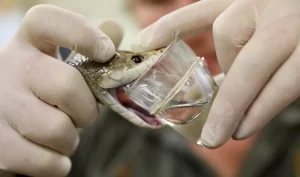“All things are poison and nothing is without poison; only the dose permits something not to be poisonous.” – Paracelsus (1493–1541)
Toxicology, often referred to as the “science of poisons,” is much more than a study of harm. It is a multidisciplinary field that plays a crucial role in safeguarding human health, advancing medical treatments, and ensuring environmental safety. Below are 10 key insights into how toxicology positively impacts our lives:
1. Understanding the Dose-Response Relationship
Toxicology is built on the concept that the dose makes the poison. Substances like metals, iron, zinc, and magnesium, are essential to our health in small amounts, but can become toxic if consumed in excess. This principle of “dose-response” helps to determine safe levels of exposure for chemicals, enabling effective regulation and reducing risk.
2. Identifying Harmful Substances for Human Health
Toxicologists study the effects of chemicals, biological agents, and physical phenomena on living organisms. Their work enables us to identify harmful substances and determine the threshold at which they pose a risk, ensuring that humans and animals are not exposed to dangerous levels of toxins.
3. Advancing Medicine with Selective Toxicity
Not all toxic substances are harmful in the same way. In fact, toxicology helps identify beneficial uses for substances that would otherwise be harmful. For instance, anticancer drugs often work by exploiting the toxic properties of certain chemicals to kill cancer cells while minimizing harm to healthy tissues.
4. Assessing and Preventing Risks
By evaluating the toxicity of various substances, toxicology informs regulatory decisions and safety standards. Toxicologists determine whether a substance poses a risk, assess its potential harmful effects, and help shape laws that protect public health from chemical hazards.
5. Improving Environmental Health
Toxicology plays a key role in protecting the environment. It assesses the risks posed by pesticides, industrial chemicals, and pollutants, ensuring that the environment remains safe for humans, wildlife, and ecosystems. The field’s work helps in managing pollutants and ensuring clean air, water, and soil.
6. Supporting Ecotoxicology for Biodiversity
Ecotoxicology studies the impact of toxic substances on non-human species, such as plants, fish, and insects. By assessing the effects of chemicals on biodiversity, toxicology helps conserve natural ecosystems and prevent species loss, ensuring that our planet’s ecosystems remain balanced and resilient.
7. Regulating the Safety of Drugs
One of the most significant applications of toxicology is in pharmaceuticals. Toxicological studies are critical for ensuring the safety of drugs. Rigorous testing during preclinical and clinical phases helps to identify potential side effects, dosage limitations, and toxicity levels, ultimately contributing to the development of safe and effective medications.
8. Enhancing Food and Consumer Product Safety
Toxicology is essential for ensuring the safety of consumer products and food. By assessing the risk of exposure to harmful chemicals, toxicologists help ensure that everything from food packaging to cosmetics is safe for use. This protects consumers and enhances trust in everyday products.
9. Providing Insights into Emerging Chemicals
With new chemicals constantly being developed and introduced into the market, toxicology helps prioritize the assessment of these substances. Through the Threshold of Toxicological Concern (TTC) and Weight of Evidence (WoE) approaches, toxicologists evaluate new chemicals based on their potential for risk, guiding regulatory decisions and ensuring that harmful substances are kept in check.
10. Shaping Policies for a Safer Future
Toxicology is instrumental in shaping policies and regulations that protect public health. By combining scientific evidence with regulatory frameworks, toxicologists help governments establish safety standards that limit exposure to harmful chemicals, ensuring that both people and the environment are protected in the long term.
Why Toxicology Matters
Toxicology is not just about identifying poisons, it’s about understanding them and finding ways to mitigate harm while maximizing benefits. From improving public health to ensuring environmental sustainability, the field of toxicology touches virtually every aspect of life. As we continue to navigate the complexities of chemicals in our world, toxicology will remain a key force in ensuring a safer, healthier future for all.


